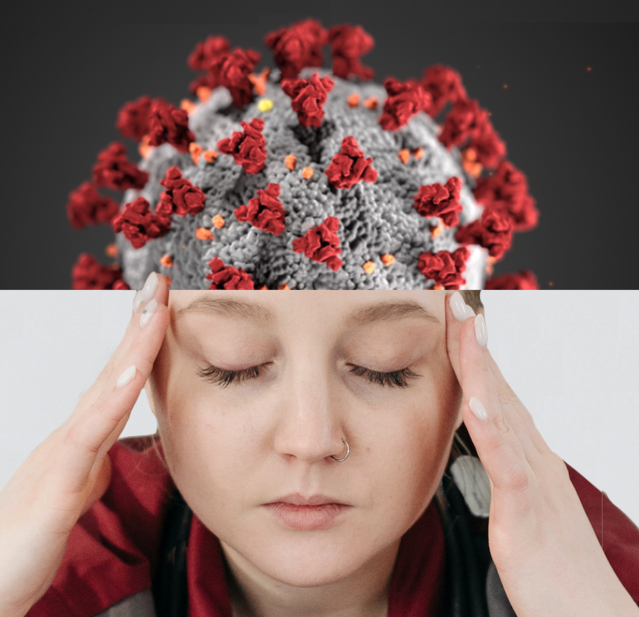Cognitive Dissonance
Biden’s Covid Probe and Cognitive Dissonance
How do we cope with two opposing explanations of the pandemic?
Posted July 1, 2021 Reviewed by Lybi Ma

We live by the stories we tell ourselves, however, when we get torn between two conflicting stories to live by we experience something uncomfortable called cognitive dissonance. This was first theorised by the social psychologist Leon Festinger in 1957.
Cognitive dissonance is the feeling of disorientation or panic we experience when forced to challenge our own beliefs. Consider the smoker who knows smoking will kill him, but he tells himself ‘it won’t happen to me.’ Or the woman who loves birds but eats chicken. Or the socialist who sends their kid to private school.
With cognitive dissonance, we’re torn between two opposing life narratives and both can’t possibly be right. We’re ‘torn in two.’ Prolonged cognitive dissonance can lead to serious distress, depression, violent acting out, self-harm, and nervous collapse.
We’re currently living through a painful time of dissonance. On the 27th of May, President Biden ordered U.S intelligence officials to "redouble" efforts to investigate the origins of SARS-CoV2. Biden said the US intelligence community was split on whether it came from a lab and asked the groups to report back to him within 90 days. As a result, the western media have gone through a u-turn on the hypothesis of the origin, and the number of Americans who believe the lab leak hypothesis has jumped to 58 percent, with sudden and stunning 83 percent of US voters supporting action against China if the lab leak theory is proven true. We are struggling to ‘believe both sides’ and this is creating widespread dissonance, tension, and anger. Witness outbursts like Jon Stewart’s ‘Lab Leak rant’ on The Late Show With Stephen Colbert, and the polarised, aggressive reaction on social media.
We are now only one-third of the way through that 90-day investigation, with the outcome of the findings due to be revealed on the 27th of August. Until then, we’re stuck with two clashing narratives in our heads.
I’m no stranger to cognitive dissonance. I grew up in a hippie anti-nuclear family, in a community where (like The Simpsons) nearly everyone’s family worked in the local nuclear power station. I became bisexual at a time when there was a straight-or-gay binary paradigm and I also held Neo-Marxist beliefs while working for an advertising agency. I used to experience panic attacks caused by cognitive dissonance. At different times in my life, I've attempted different strategies for coping with dissonance, and I offer these up as they may work for you. Each strategy, however, comes with its own problems.
1. The Stoic route
Instead of being torn in two, I've tried to de-escalate a conflict and to observe it without judgment. I told myself ‘this will be resolved in time’ and ‘this is beyond my ability to resolve by myself.’ This may seem like a passive strategy but it's supported by the ancient Stoics and cognitive behaviourists. As Epictetus (50-135 AD) said, ‘The beginning of philosophy is the recognition of conflict between opinions…There is only one way to happiness and that is to cease worrying about things which are beyond the power or our will.’
2. Considering relationships
I've also found it helpful to imagine that both sides of the argument are two people in a relationship. Consider a couple in which one partner insists the lab leak theory is correct, and the other believes in the zoonotic origin hypothesis. The first is in blame and retribution mode, the second is in coping mode. For the ‘blame partner’, ‘coping’ is pointless and a moral insult because it requires accepting that 3.9 million deaths are not the fault of any government. Why should we be forced to ‘cope’ as individuals, they argue when we should be fighting for compensation for bereaved families, imposing sanctions against the perpetrators. For the second ‘coping partner’, the anger of the ‘blame partner’ is impractical and gets in the way of personal and economic recovery. It's easy to see how such a relationship could split. Consider how such a couple could be reconciled by putting their relationship above their differences in the name of peace. Imagining two sides in a cognitive struggle as a couple who need relationship counselling has certainly helped me.
3. Being pragmatic
Using the pragmatic strategy is a way to reduce the dissonant noise by narrowing the field of focus. When I've done this it's as if I'm living in a house with a leaky roof, and so I place buckets to catch the drips. I don’t focus on who created the holes in the roof, I don’t seek to blame. Instead, I focus on emptying and replacing the buckets. I'm focused only on repairs, not causes. Being pragmatic resolves the dissonance but this also means accepting the most liveable side of the dissonant dispute for purely emotional reasons. We take the least conflict-ridden path forward, and this could be the wrong path because we're not going to fix the cause of our leaky roof with our buckets.
4. Picking a truth
When all the other strategies have been tried and found wanting, I've found myself throwing all my hopes at the big-truth resolution. I follow the evidence then force myself to pick one side and stick with it. This stops cognitive dissonance outright but then I have to hope that the truth I've picked is also the narrative that society will come to select. In picking one side, I take a risk as my government may lie for ‘pragmatic’ political or economic reasons and this would place me outside or against society. Or more simply, I may have picked the wrong side and may be using confirmation bias to shore up my convictions. I may end up mocked and rejected. Then again, if I stick to ‘my truth’, conflict with others may still better than unresolved conflict within myself.
Will the dissonance end and the question be answered?
It would be a relief to us all if we could believe that the final and conclusive truth will be disclosed on August 27th, when Biden’s Intelligence departments deliver their findings. Ideally then, one of the two competing Covid origin narratives will finally be picked as ‘the truth’ and such an outcome will have an immense impact on all of us psychologically, economically, and politically. There could be huge repercussion for global politics. However, it’s most likely that the results of this Covid investigation will be inconclusive and that our dissonance will extend indefinitely into the future. Over time, this dissonance may be too much for us to bear. As Festinger claims,
'When dissonance is present, in addition to trying to reduce it, the person will actively avoid situations and information which would likely increase the dissonance.'
As a result, our societies may come to a conclusion on the origins of Covid more out of the need to get rid of disturbing dissonance than out of any real commitment to truth or investigation of facts. We may decide on one side over the other, just so we can avoid further conflict, feel better and get on with life with one clear story to live by, no matter how false this new Historical truth is. Worse still, we might try to get rid of our Covid dissonance by avoiding all information about the origins of the pandemic, and by attempting to just wish it all away.


